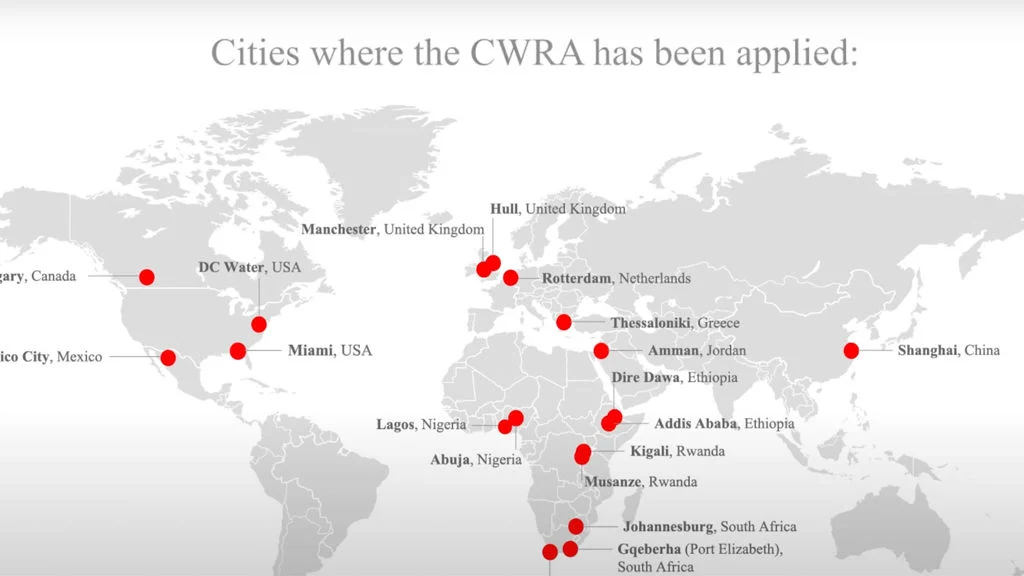The City Water Resilience Approach
The City Water Resilience Approach (CWRA) was developed to help cities grow their capacity to provide high quality water resources for all residents, to protect them from water-related hazards, and to connect them through water-based transportation networks (“provide, protect, connect”).

Access your copy of the CWRA
Get in touch with our team
Every city faces different water challenges. Some are dealing with increasing risk of flooding, driven by climate change. Others struggle to supply sufficient water for growing populations and economies.
Arup developed the CWRA to help leaders navigate these issues, bringing the most effective practices to always local issues.
Resilience takes time to build. It’s a complex outcome to produce, requiring investments in infrastructure, governance, communication and regulation. The CWRA has helped cities around the world to respond to profound water issues and produce long-term solutions that address each of these dimensions of the resilience puzzle.
One approach, many priorities
At its heart the CWRA provides clear insights on the most effective sequencing and prioritisation with a water programme, helping clients to engage with the complexity of the water system and prepare for changes in demand and use. It helps unlock investment and funding for much needed water infrastructure. It adopts a nature-first ethos, prioritising interventions that don’t rely on hard infrastructure where natural factors can play a role.
The five stages of developing water resilience
The CWRA brings method and insight to a city’s water resilience in 5 key stages:
-
1
Understand the system
Explore shocks and stresses, identify system interdependencies, convene stakeholders, map assets and processes.
-
2
Assess urban water resilience
Assess the city's approach according to the CWRA to identify existing strengths and weaknesses and establish baselines.
-
3
Develop an action plan
The action plan is an holistic evaluation of anticipated benefits and costs and prioritization of key projects.
-
4
Implement the action plan
Based on the city assessment, a plan is developed for realizing interventions that build water resilience.
-
5
Evaluate, learn and adapt
Implementation of resilience measures is evaluated and changes in context and stakeholder involvement are analysed.

Beyond infrastructure
The CWRA highlights the social role of citizens and governance, ensuring the right incentive structure and communications are in place to drive culture change around water and sanitation.
For corporates, the CWRA works hand in hand with business strategy and risk management, establishing how water plays a role in a business’s operations and future.
Finally, the CWRA enables clients to develop solutions at the portfolio level, dovetailing many related projects at once, to achieve resilience at scale.
Download
Download the City Water Resilience Approach
Associated publications
Download the City Characterisation Reports and Profiles that have been produced to date.




